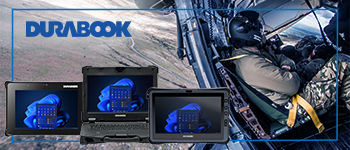The secret to stadium security
Paul Dodds explores how stadium security teams can broaden their strategies and collaborate with city stakeholders by using flexible and connected security solutions
Some of the biggest events in the world are held at city stadiums. Whether Olympic games, world-championship football matches, highly anticipated concerts or massive cultural gatherings, these events draw crowds by the tens or hundreds of thousands. During the world’s largest sports events, these numbers can reach millions, including visitors who come into cities to get a taste of the excitement. And while these events are meant to be thrilling and enjoyable, it’s this mass gathering of people that make stadiums prime targets for threats.
Stadiums are not meant to be secured like prisons or even airports. These venues are designed to be open and welcoming because ultimately, every stadium’s aim is to make sure each guest has a fantastic experience. From the moment they leave their home or hotel, the journey needs to be smooth and fuss-free. From using public transit to parking vehicles and purchasing food or merchandise to reaching their seats, it’s this easy movement to and through a stadium that keeps guests happy and ensures they come back for more.
So how do today’s big sports stadiums provide that fluid and enjoyable experience, while also protecting people from more serious threats? It’s a delicate balance – one that’s best achieved using advanced security technologies. These solutions allow teams to see what’s happening and respond to incidents at any given moment, without disturbing the customer experience. And securing these big events is not a job that’s done alone. It requires constant collaboration with other city stakeholders such as nearby businesses, mass transit and police.
There’s a lot happening on game day. Inside stadiums, security staff are stationed in control rooms and around the venue, monitoring everything from the car park to the seats. As visitors walk or drive onto the site, operators know that anything can happen at any moment, so they must be prepared.
It’s why stadium security teams rely on technologies to get a better understanding of what’s happening. They use solutions such as video surveillance, analytics, access control and automatic number plate recognition systems to spot any possible issues. If there’s a crowd bottleneck, a door being forced open or a bag lying around, their security solutions will notify them immediately. They zoom into seats with high-definition clarity and use intuitive maps to get different vantages of rowdy guests or to track suspects through a crowd. On-foot staff use mobile apps to see what’s going on as they move around the stadium.
Some of the most forward-thinking stadiums implement unified security solutions. They know it’s the most effective way for their teams to work. Instead of jumping from one interface to another, operators manage all systems from a single pane of glass. This provides a heightened level of situational awareness that helps operators respond to incidents and diffuse threats in seconds. With pre-defined response procedures, operators are guided through the right steps. So, no matter what stressful situation comes up, they can make decisions that lead to a speedy and safe resolution. All of this ensures an uninterrupted and safe experience for guests.
However, stadiums security teams don’t operate alone. During some of the largest sporting events match days can have tremendous effects on the whole community. Before an event starts, the city is alive. Nearby hotels are filled to capacity and restaurants and sports bars are busier than ever. From every direction, fans are hustling their way to the stadium. This means transit agencies are on high alert, making sure the crowds arrive safely and on time. Transportation departments are watching roadway congestion and police officers are tracking any suspicious behaviour.
All of these organisations want to ensure game day goes smoothly. It’s why, now more than ever, stadiums are seeking solutions that help them collaborate and share information with outside agencies.
Shared solutions help organisations tackle shared problems. When a stadium can provide system access to police or mass transit agencies, all their teams can work together to keep a city safe from major threats. This requires an open and advanced security platform that lets stadiums securely extend system access to outside partners when needed.
For instance, it’s common for law enforcement to set up their own remote monitoring stations outside venues. With access to outdoor video cameras at the sports complex, officers can assist local security teams in securing the premises. If a fight breaks out or a suspicious object lying around is detected, both stadium staff and police remain on the same page. They can collaborate and co-ordinate effective response in very little time. And there’s no wondering what’s happening from either side. Everyone has a shared view of the situation and stays informed in real-time.
Inside the stadium, collaboration becomes even more critical. A shared view helps teams spot and defuse threats before they escalate. Should a more serious threat occur, all resources can come together to apprehend suspects so other guests are able to stay focused on enjoying the game. Essentially, by sharing real-time security information, stadium staff and police officers can remain more proactive.
The same applies to mass transit agencies. With access to certain external cameras, transit organisations can better anticipate customer demand. They can monitor crowds as they exit the stadium after the game and prepare their own officers and staff for the influx of passengers. It’s the best way to ensure that their customers’ journey home is quick, stress-free and, most importantly of all, safe.
The Groupama Stadium, also known as the Parc Olympique Lyonnais, is a sports and recreation complex and soccer stadium located East of Lyon, France. With a maximum capacity of 59,186 seats, the venue is the third largest stadium in France and the 27th in Europe. The security team pays particular attention to the safety and well-being of community members as well as business owners, fans, players, journalists and staff. Their mission is to ensure the highest levels of safety while simultaneously maintaining impeccable service.
It’s why today the security team at Groupama Stadium uses the Security Center Omnicast system for video surveillance. According to Xavier Pierrot, Stadium Manager: “Security is of the utmost importance, but it must not be intrusive or become
a source of anxiety. For families with children that are attending games, for example, this experience must be one of leisure. So, we needed a solid and reliable system. The Security Center platform had
all the requirements to ensure the surveillance of
the stadium.”
All monitoring is now carried out from a central control room at the stadium, helping operators to save time and become more efficient when responding to events. Teams never have to leave the control room for intervention because all decision makers including law enforcement, the organiser, first responders, firefighters and security operators have access to the same system.
The Groupama Stadium team has been able to integrate a third-party system with the video system to facilitate the transfer of evidence. The integration allows for secure gateways to be set up with certain public partners such as the police headquarters or the Interior Ministry, enabling the transfer of information during large-scale events such as Euro 2016.
“Since its installation and throughout our last 12 games, the Genetec Omnicast video surveillance solution has enabled us to resolve 100 percent of incidents; the vast majority of which were cases of theft or dropping of smoke bombs,” says Xavier Pierrot.
During a big sporting event, stadiums are at the centre of the action. Security teams need solutions that help them stay one step ahead of threats, without disturbing the customer experience. Technologies that are flexible and connected empower security teams to keep guests both safe and happy.
These solutions can also help stadiums move away from siloed operations. Instead, they can begin to work more closely with other city stakeholders who have an equally vested interest in making sure everyone has a great day at the stadium.
By sharing vital security information, stadiums can foster greater collaboration. And it is through greater collaboration that entire cities are able to become more efficient at ensuring every big game is a welcomed experience for both visitors and the entire surrounding community alike.
Paul Dodds is Country Manager for the UK & Ireland at Genetec. With over 20 years of experience in the security industry, he brings with him his expertise in installation, manufacturing, distribution and software. Since joining in October 2015, he has focused on developing the UK & Ireland market by driving growth in core markets as well as promoting key technological advances such as Cloud Solutions.









